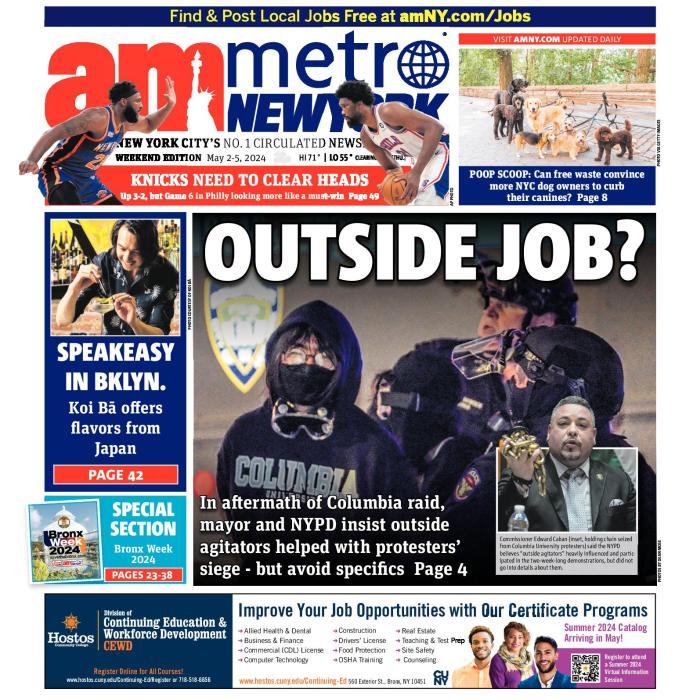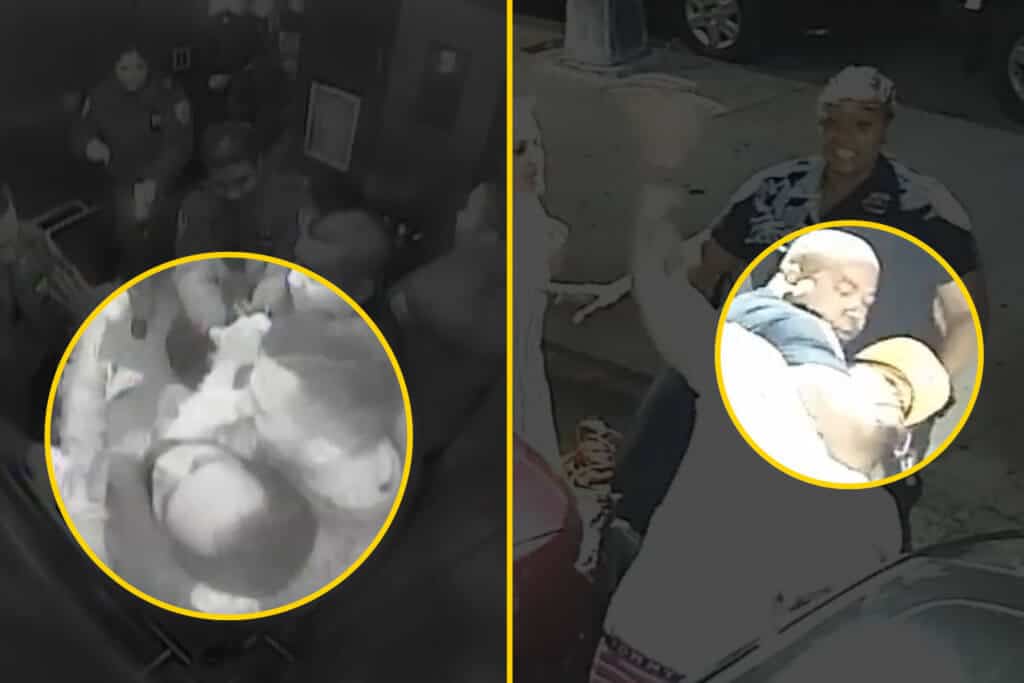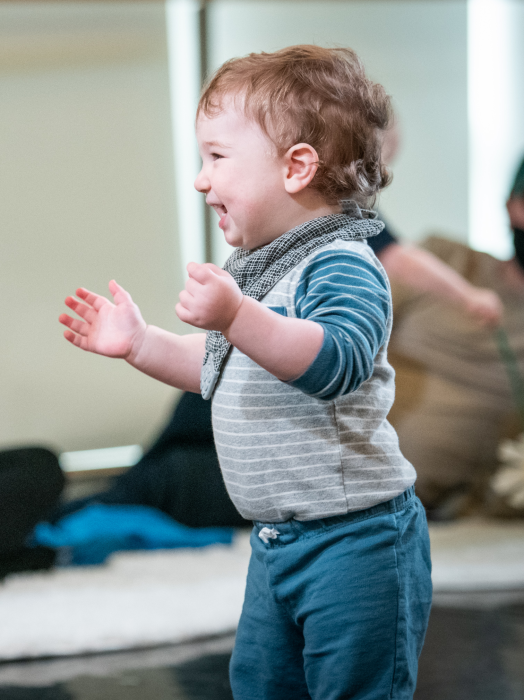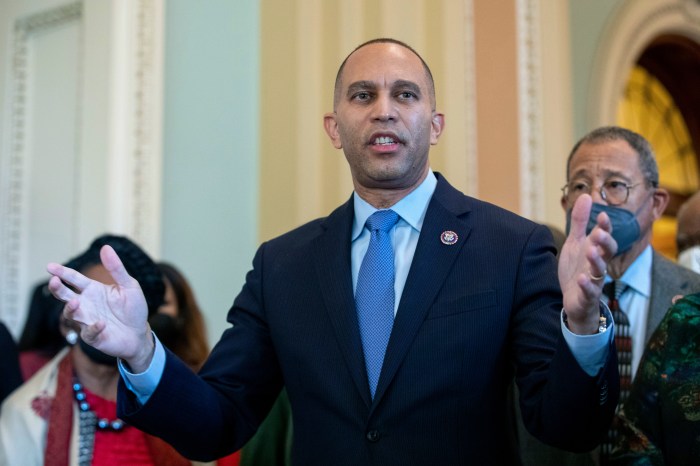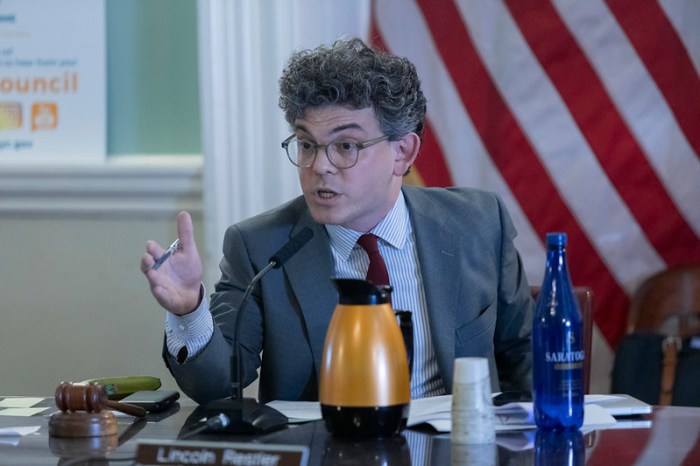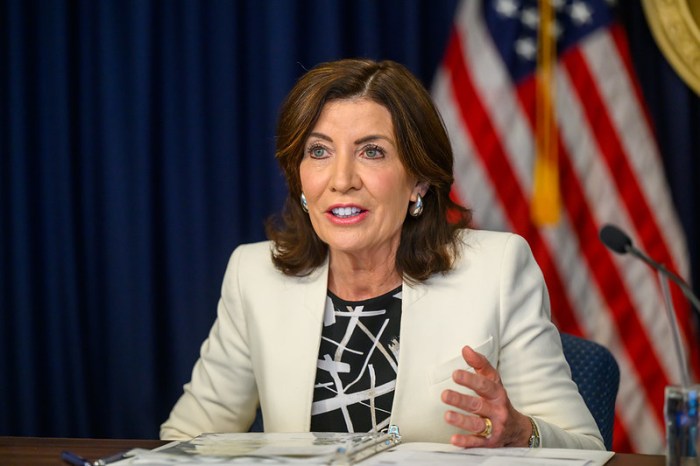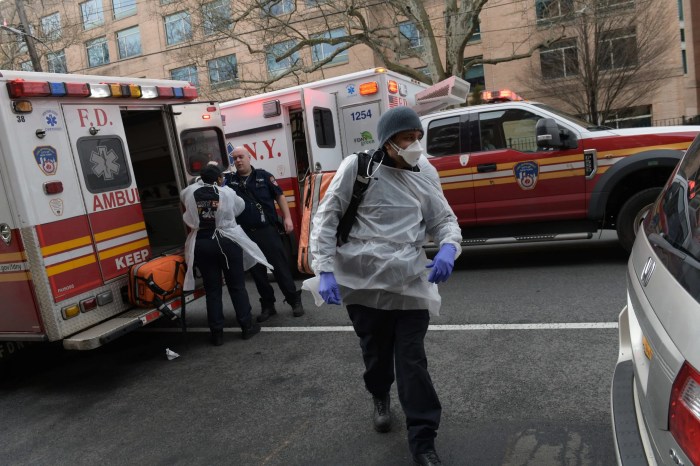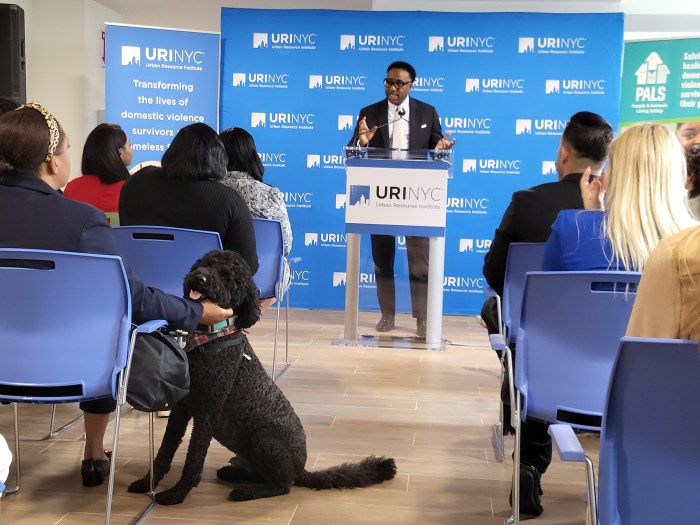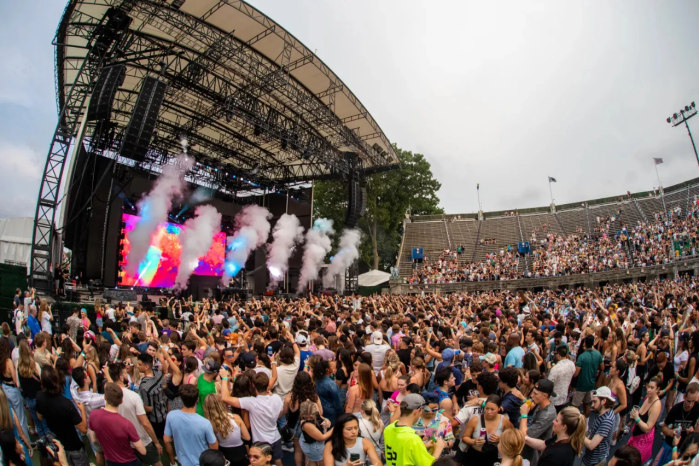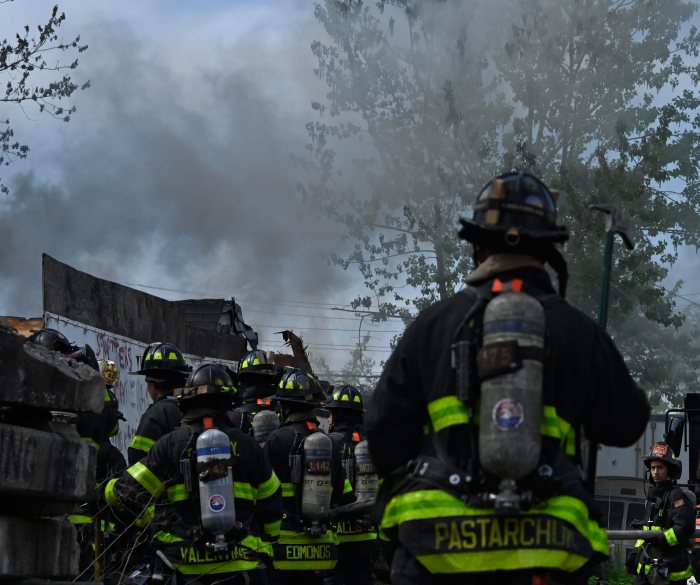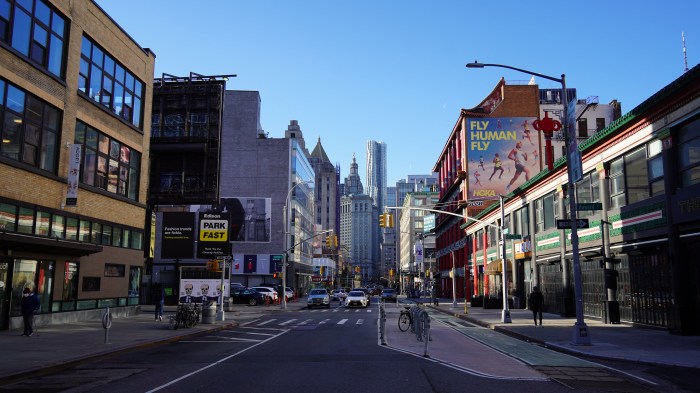The state’s highest court on Monday upheld a 2020 New York City law banning police from using chokeholds and other methods that restrict breathing.
Local Law 66, or Administrative Code § 10-181, passed the City Council in June 2020, weeks after George Floyd’s killing at the hands of a now-former Minneapolis police officer who knelt on his neck for over nine minutes in an episode of police brutality that sparked public backlash across the country.
Then-Mayor Bill de Blasio signed the legislation the following July, making it a misdemeanor for “any person” to “restrain an individual in a manner that restricts the flow of air or blood by compressing the windpipe or the carotid arteries on each side of the neck, or sitting, kneeling, or standing on the chest or back in a manner that compresses the diaphragm, in the course of effecting or attempting to effect an arrest.”
The chokehold ban was upheld by the New York State Court of Appeals on Nov. 20 in response to a suit brought by a coalition of several police unions led by the Police Benevolent Association — the largest union representing rank-and-file New York City cops. The coalition subsequently broke up, leaving the PBA and the Sergeants Benevelent Association.
The unions argued the law violated the New York State Constitution and wanted it declared unconstitutional, according to the suit. They put forward two main arguments against the law: that it was preempted by a less restrictive state law that criminalized the use of chokeholds but not the obstruction of breathing through kneeling; and that its definition of the prohibited behavior was too vague.
But the progessive-leaning court unanimously upheld the law in a ruling written by Judge Michael Garcia.
“Because section 10-181 does not conflict with state law or regulate in a field in which the state has expressly or impliedly precluded local legislation, it is a permissible exercise of local lawmaking authority,” Garcia wrote in the ruling. “The language of the section also provides fair notice of the conduct prohibited and is sufficiently definite to avoid arbitrary or discriminatory enforcement and is therefore not void for vagueness.
City Council spokesperson Rendy Desamours applauded the ruling in a Monday afternoon statement.
“Today’s decision from the New York [State] Court of Appeals, affirming the council’s enactment of legislation banning chokeholds and other forms of restraints during attempted arrests, is consistent with our goal to advance public safety,” Desamours said. “The council passed Local Law 66 of 2020 to protect New Yorkers from being needlessly harmed by improper police restraints, and we are pleased to see the New York [State] Court of Appeals unanimously uphold it. Now that litigation has concluded, we look forward to the continued enforcement of this law to keep New Yorkers safe.”
A PBA spokesperson said that while the court’s decision was not the outcome the union was hoping for, it did provide more “certainty” for officers about the law.
“Under this Court’s decision, it must be proven at a minimum that an officer’s action in fact ‘impedes the person’s ability to breathe,’ was ‘not accidental,’ and was not a ‘justifiable use of physical force,’” the spokesperson said. “The Courts interpretation provides clarity to this vague statute, which arguably as written could have been violated by the compression of the diaphragm in any manner during the course of an arrest.”
